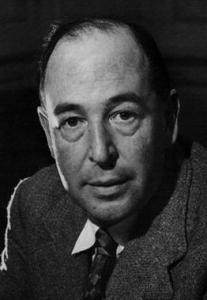 Fresh titles dominate this year’s slate of just-announced finalists for the next Prometheus Hall of Fame Award for Best Classic Fiction.
Fresh titles dominate this year’s slate of just-announced finalists for the next Prometheus Hall of Fame Award for Best Classic Fiction.
This year’s five finalists – first published between 1932 and 2003 – include novels by James Blish (The Star Dwellers), C.S. Lewis (That Hideous Strength), Aldous Huxley (Brave New World), Adam Roberts (Salt) and Charles Stross (Singularity Sky).

Blish and Roberts are first-time Hall of Fame nominees, while this is the first time that Huxley’s classic dystopian novel has been recognized as a finalist.
Blish, a Hugo-winning author widely admired in the 1950s and 1960s during the peak of the so-called Golden Age of modern sf, has never before been nominated for the Prometheus Award – perhaps in retrospect a major omission that at last has been corrected.
Although Huxley’s classic dystopian novel was nominated during the first decade of our awards in the 1980s, this is the first nomination for Brave New World in roughly four decades.










